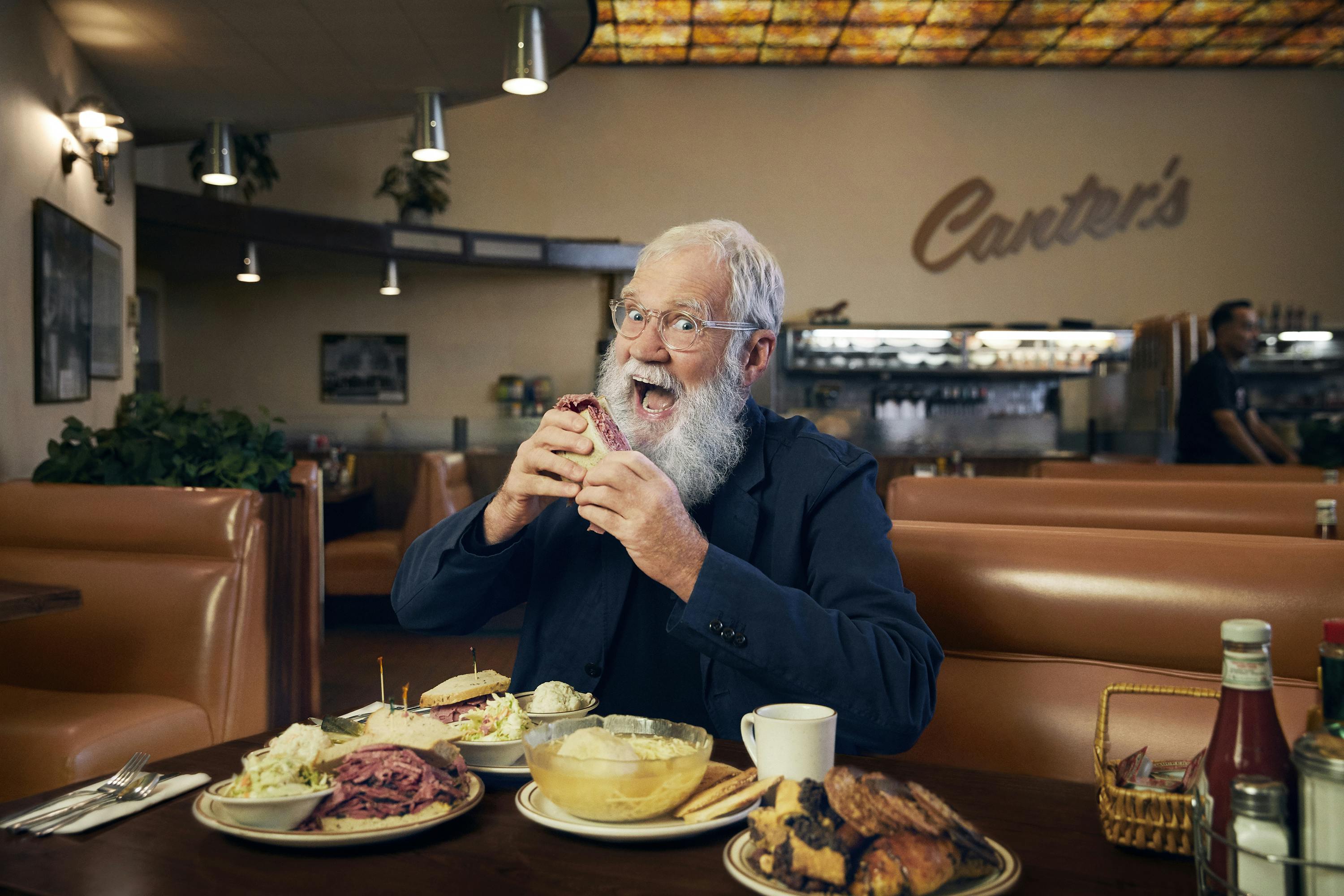This man truly needs no introduction. The iconic late-night host heads to famed L.A. diner Canter's to talk with Queue's Krista Smith about what it's like to sit down with the world's brightest minds, the joys of fatherhood, and the price of stratospheric success. (And yes, that beard, too.)
There was a time back in the mid-1970s when a young Midwest transplant named David Letterman would frequent Canter’s, the famous Los Angeles delicatessen, to commiserate with fellow strivers after sets at the Comedy Store on the Sunset Strip. “It’s a placeholder in my life,” Letterman says now, seated at a table at the busy landmark eatery. “The nice thing about this place is it’s open 24 hours a day, I believe seven days a week, for infinity. For a time, we would come here and gather and make each other laugh and make fun of other people, and talk about how badly we bombed or how well we did or what we were doing.”
The talent in that room went on to do very well indeed, but Letterman would attain a specific cultural currency as the definitive voice in late-night comedy for an entire generation, thanks to two series — Late Night with David Letterman and Late Show with David Letterman — that lasted a combined 33 years. In all that time, he proved himself to be whip-smart, confrontational at times, and always very, very funny. Now in semi-retirement, Letterman has settled into a quieter life (he has the beard to prove it), but his wit is as incisive as ever, his curiosity about the world and the people in it just as boundless.
His series My Next Guest Needs No Introduction allows Letterman to spend hours getting to know some of the most important figures from the worlds of politics and entertainment. Queue brought Letterman back to Canter’s to talk with Krista Smith about his life then and now, the modern state of comedy, and what he’s learned about the cost of being driven to succeed.
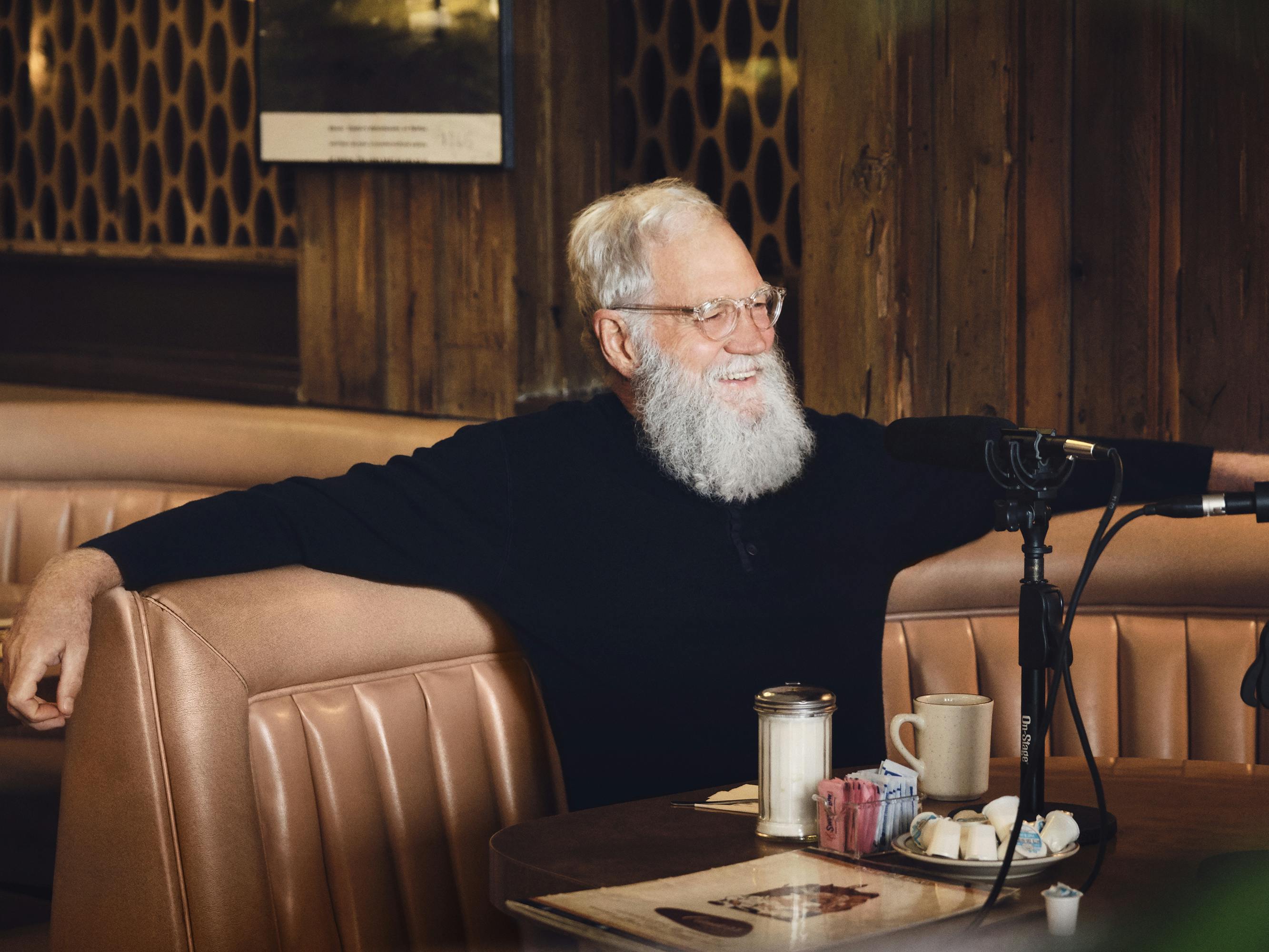
Krista Smith: You moved to L.A. in 1975. What was that Dave like?
David Letterman: Really naïve, ignorant, driven mostly by a small, low-flame ego. I can remember being in Los Angeles and being stunned by it, because I came from Indianapolis and the similarities are distant, if not non-existent. I had to get used to new flora, new fauna, new sky, new weather, new lack of zoning. It was berserk, but still, in all, I knew I was in the right place. Those of us who are of that era — 1975 or early 80s — always thought of it as like Paris before the war: full of romance, full of camaraderie, full of great creativity and fighting the good fight. We were the Resistance. I looked at that as being the really high time for the art. And now I realize that, in fact, the high time for the art is now, and the Comedy Store. . .was a small enclave of men and women who had the same dream.
The state of the art is so advanced from what I was up to and what I was influenced by, it’s remarkable . . . That’s not what we were doing back in 1975.
David Letterman
Where are young comedians galvanizing around each other and doing shows today?
DL: I don’t know. Perhaps it exists in some minor version at the Comedy Store or at the Laugh Factory or at the Improv. My friend Mary and I were in a comedy club in Indianapolis the other night, and it was open mic night. It was a nice room, and the lobby of the place is plastered with headshots of young comedians — hundreds and hundreds of pictures — and you just walk around not knowing who you’re looking at. They’re in the situation that we were all in at the Comedy Store. So, it apparently does exist somewhere.
Do you watch a lot of comedians still? Do you learn from the new comedians?
DL: People recommend comedians that I should be looking at, and when I see somebody that’s been recommended, the state of the art is so advanced from what I was up to and what I was influenced by, it’s remarkable. The intelligence, the insight, the articulate way material is presented, the effortless way material is presented, is enviable. That’s not what we were doing back in 1975.
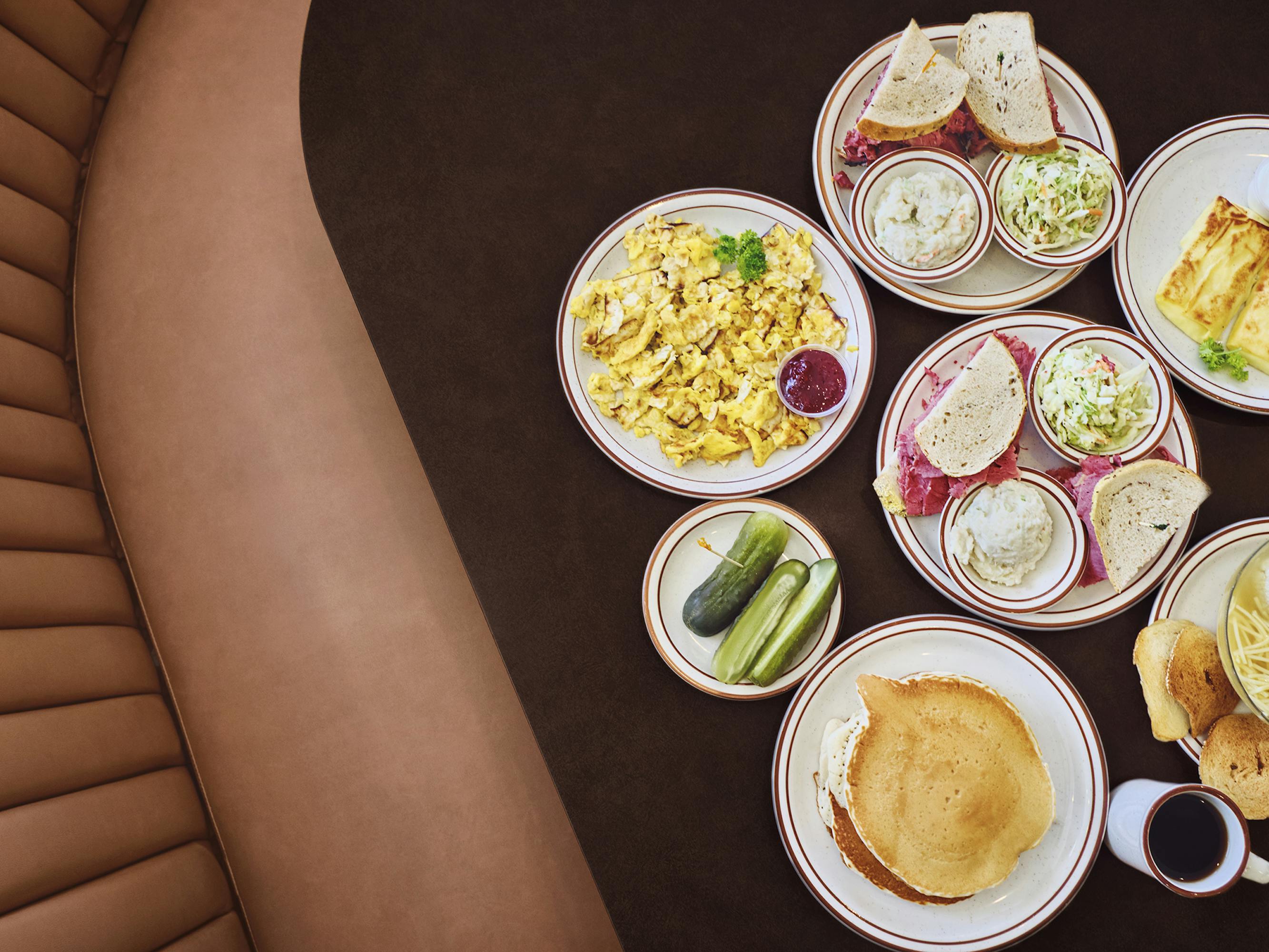
You have your show on Netflix, My Next Guest. Your long-form interview skills are very admirable.
DL: That’s editing. We ended up running a show about two days. We’ll take a break and get sleep, soup, and a hot blanket. Then we come back and finish it up, and they take 48 hours of video, and they edit that.
How do you choose who you want to interview?
DL: Typically, it’s people that I only know at arm’s length — just a cursory knowledge of what they are up to. The stories of humans . . . it’s crazy. In my case, I had nothing to overcome. I knew exactly what I was going to do. It was A, it was B, it was C, and everything just went like that. But some of the people that we talked to had been shot in the face. Some of the people were booted out of their own home because the family could no longer support them. Some of the stories are jaw-dropping and unimaginable, but that’s sadly the nature of life. So that’s what I find interesting: the lives of other people, whether they become hugely famous in the world of show business or not. It’s the path, the journey. I’m fascinated by that.
Do you miss anything about the talk show days at all?
DL: I miss having a place to talk where people are either paying attention or pretending to pay attention. Because at [my] house, I’m pretty far down on the flowchart, and that irritates me. So if you can get people under any pretense to sit there and act like they’re listening to me, that’s all I’m looking at.
The beard might be a little bit of a deterrent. Is there anything that’s annoying about it?
DL: No, not to me. To others? Yes. The annoyance of it at large is endless. I have to put in my will that some idiot at the mortuary doesn’t shave me and put me in a suit because my wife has said, “Just go ahead. Just get rid of the beard.”
You trimmed it a little.
DL: I do what I can. I spray it with Roundup, and that seems to take care of almost everything.
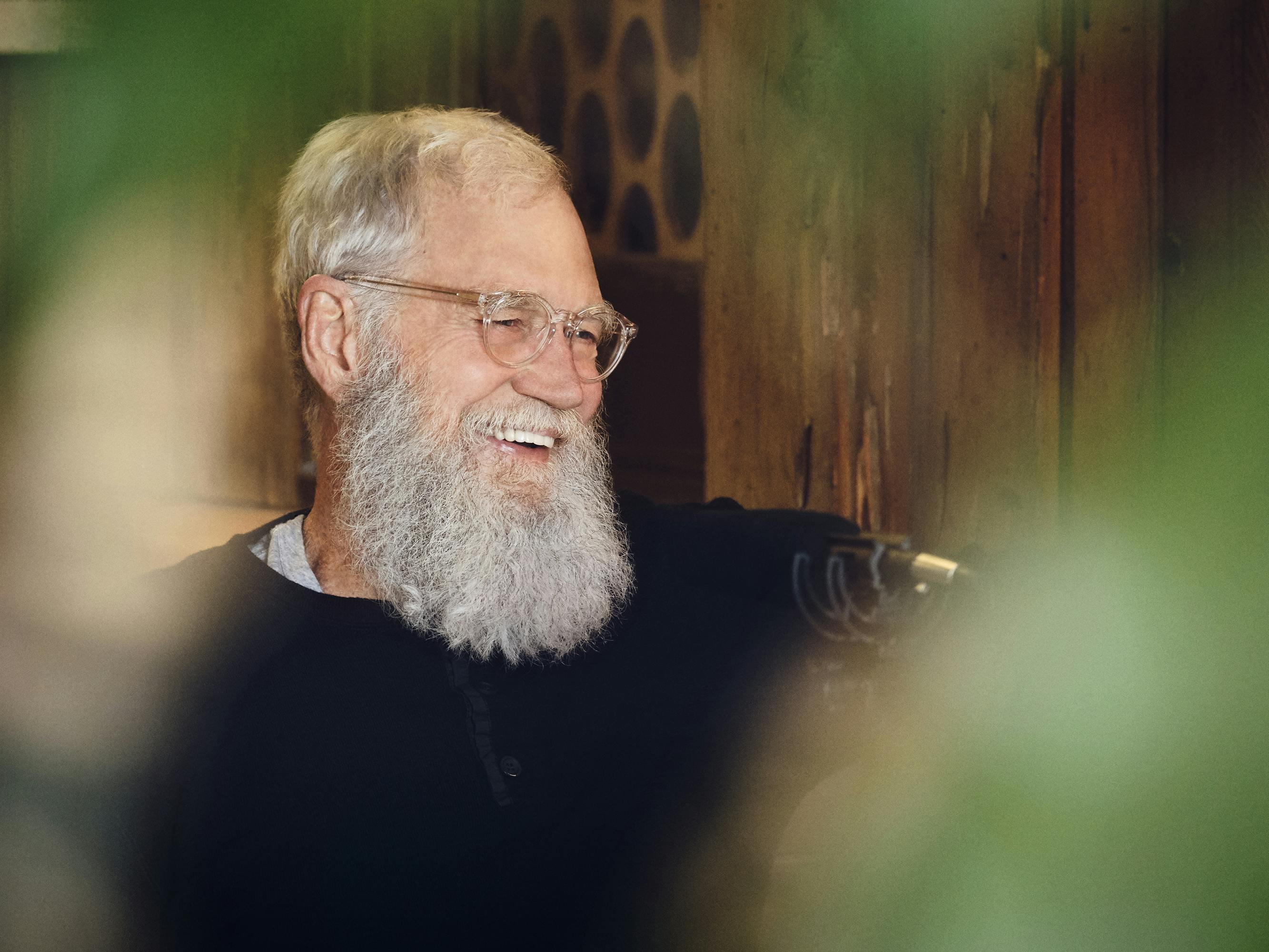
There are so many things from the talk show [days] that defined my generation — whether it was Madonna, or Drew Barrymore flashing you, or the “Stupid Pet Tricks” segment. . .any time you dropped anything off the roof.
DL: I remember the first time we did it [dropped things from the roof], we went out to a fireman’s test facility, and they had, like, a six-story tower that periodically they would set on fire, and then the firemen would have to test their skills going into a burning tower and extinguishing it. And so we went out there and we got their permission [to use it]. The thing had no railing at the very top — or maybe it only had one on one side — but it was very perilous. We were up there all day, and it was so frightening because you could just see a cameraman tripping on a cable — “Where’s Bob? Oh! All right, that’s it for the day.” But it never happened, luckily. And then when we got our own building, we could just drop stuff off our roof. I think it was a pathetic substitute for actual comedy, but God it was fun.
And then when we got our own building, we could just drop stuff off our roof. I think it was a pathetic substitute for actual comedy, but God it was fun.
David Letterman
Back to My Next Guest.Anyone you would want to swap places with for a week?
DL: Well, Jay-Z is very impressive. He’s one of those guys with great presence. He’s just cool. And Barack Obama, because that’s just obvious. Who wouldn’t want to be that guy? His life and his achievement — there were huge obstacles in his road, also. In terms of the women that we’ve talked to, look at Ellen DeGeneres — look at her: She’s unscarred. Well, I don’t mean to say unscarred. Her scars have healed, and she has put them in whatever place a person puts those things. She is wildly successful and incredibly funny.
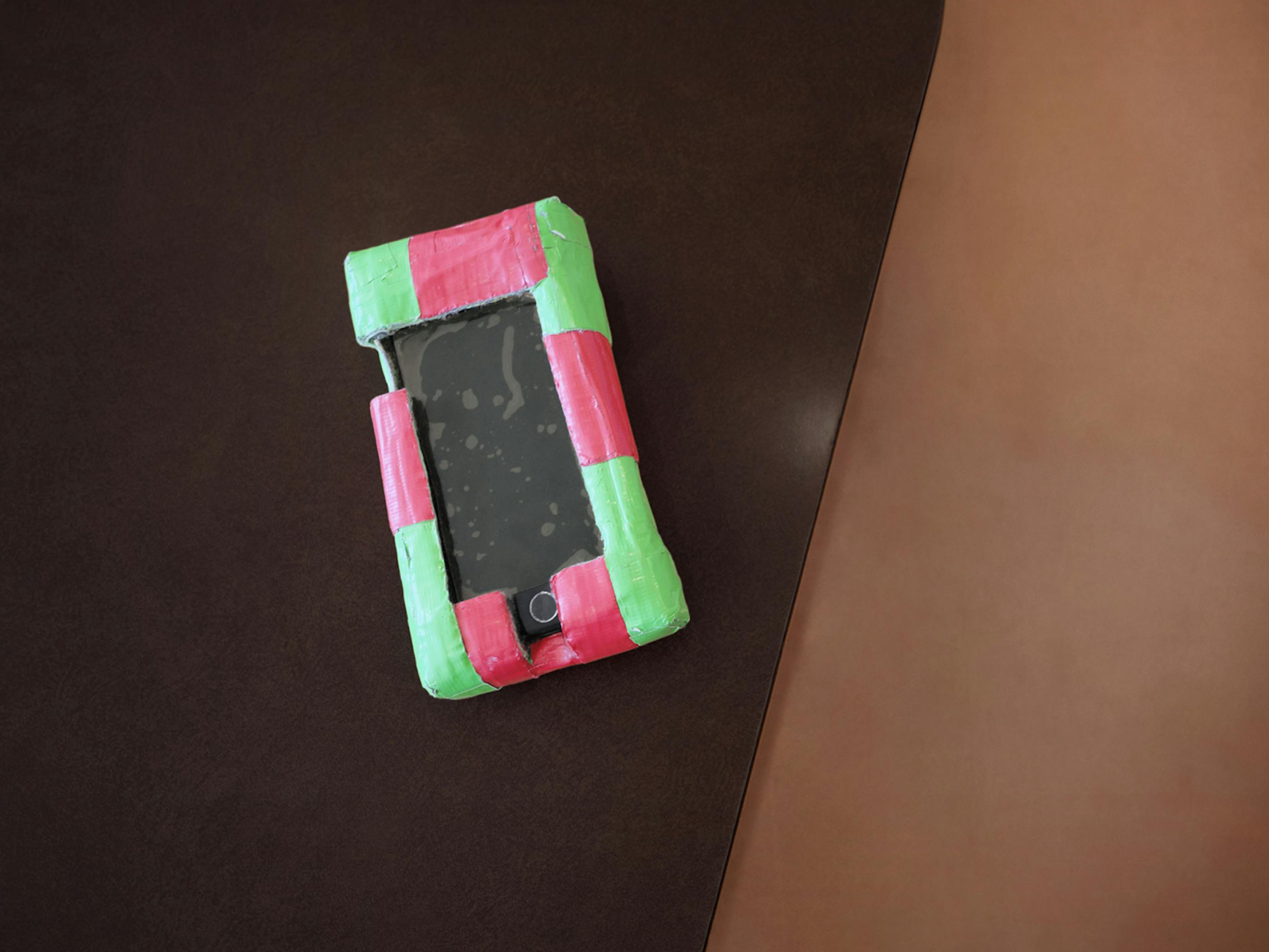
Does Harry [your son] make you laugh?
DL:Yeah, he does make me laugh. The other day I said, “Harry,” — we’re at an airport — I said, “Go in there and find out what time the plane is leaving.”
“No.”
And I said, “Oh, come on, Harry. Go on.”
“I’m not going to.”
So, I said, “Harry, when I was your age, I would do everything in an airport. I could go in, I’d get the flight number, I’d get the seats, I did all of that stuff.”
And Harry says, “Is that when you worked for the Wright brothers?”
I thought,Whoa, buddy.A short right hook, and he’s down.
